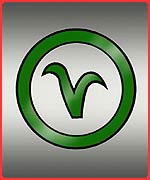

Vegetarianism

What it means:

The term vegetarianism covers a whole range of eating behaviours, but technically a vegetarian is a person who does not eat meat, fish, shell fish or anything derived from any of these when they have been killed, for example gelatine and rennet.
![]()
There are different types of vegetarian:

Lacto-ovo vegetarians are normal, common veggies. They eat both dairy products and free-range eggs.
Pescatarians or Piscatarians eat no meat, but do eat fish.
Lacto vegetarians don't eat eggs, but do eat dairy products.

Ovo vegetarians don't eat dairy products, although they may drink soya milk, but do eat free-range eggs.
Vegans will only eat plant based foods and won’t eat dairy products, eggs, honey, or any other animal products or by-products.





In fact there is a whole range of eating behaviours covered by the term ‘vegetarian’ from people who will eat almost anything to those who are vegetarian but don’t even like vegetables!

![]()
Is it healthy?

‘Yes’ – research shows that you can eat a vegetarian diet and be as healthy as, if not healthier than, those who eat meat. This is as long as you make sure that you get all the necessary types of protein, carbohydrates, fats, carbohydrates, vitamins and essential minerals.
![]()
How do I do that?

For protein - teenage girls need 45 grams of protein and teenage boys need 55 grams of protein, per day. Get it from nuts, peas, beans, cereals, milk, cheese and eggs
For carbohydrate – which gives you energy – you get from bread, rice, pasta, potatoes, fruit
For fats – you get from butter, cheese, milk
For vitamins –

Essential minerals – most important are calcium, iron and zinc. Calcium is found in milk, cheese, yoghurt, white bread and green vegetables. Iron is found in eggs, leafy greens, whole meal bread, plain chocolate and lentils (vegetarians tend to run short on iron unless they are making special efforts to make sure they get enough). Zinc is found in cheese, sesame and pumpkin seeds and lentils.
![]()
Some food that is Suitable for Vegetarians is labelled with this symbol to make it clearer to tell veggie products from ones that contain slaughter by-products:

![]()
 What
about holidays? Well, most restaurants and eating places in Europe will provide
vegetarian options. If you are ordering a table then it might be worth telling
them that there are vegetarians in the party. Don't speak the language? Well,
here's your basics: Here's "I am vegetarian' in 5 languages:
What
about holidays? Well, most restaurants and eating places in Europe will provide
vegetarian options. If you are ordering a table then it might be worth telling
them that there are vegetarians in the party. Don't speak the language? Well,
here's your basics: Here's "I am vegetarian' in 5 languages:
German - Ich bin Vegetarier (M), Ich bin Vegetarierin (F)
Spanish - Yo soy vegetariano (M), Yo soy vegetariana (F)
Portuguese - Eu sou vegetariano (M), Eu sou vegetariana (F)
Italian - Sono vegetariano (M) Sono vegetariana (F)
French - Je suis un vegetarien (M) Je suis une vegetarienne (F)
![]() If you are a vegetarian or are
thinking of becoming a vegetarian we would strongly recommend checking out these
websites:
If you are a vegetarian or are
thinking of becoming a vegetarian we would strongly recommend checking out these
websites:
 , but more specifically:
www.vegsoc.org/youth/school/ks4/
, but more specifically:
www.vegsoc.org/youth/school/ks4/
 The Vegetarian Voice for Animals charity.
The Vegetarian Voice for Animals charity.
![]() If
you are considering becoming veggie then we strongly recommend that you
e-mail Viva! and ask them to post you their new veggie pack. It is extremely informative
and helpful.
If
you are considering becoming veggie then we strongly recommend that you
e-mail Viva! and ask them to post you their new veggie pack. It is extremely informative
and helpful.


![]()
![]()